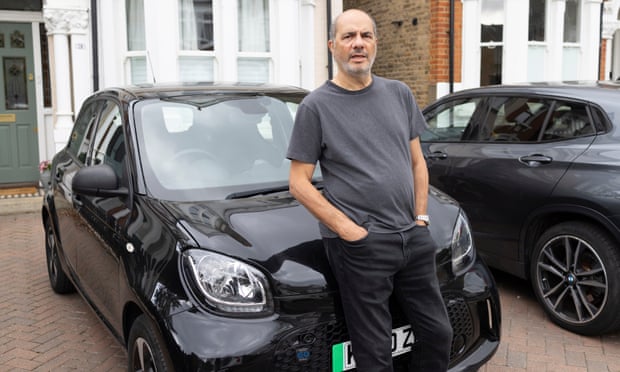Drivers who ditched petrol and diesel to help save the planet face huge price rises in premiums
Driving an electric car should be a win-win, saving money and the planet. So David* was shocked when the insurance on his Tesla Model Y came up for renewal, and Aviva refused to cover him again, while several other brands turned him away.
When David did secure a new deal, the annual cost rocketed from £1,200 to more than £5,000.
“My insurer was Aviva from July 2022 to July 2023, but when it was coming up for renewal, I received a letter stating that they would not be covering the Tesla Model Y any more,” David says. “I am a member of a Tesla UK owners forum, and lots of other people seem to be having the same issue.”
In the Facebook group, members share stories of horror renewal quotes, with increases ranging from 60% (up to £1,100) to a staggering 940% (a jump from £447 to £4,661, according to a screengrab shared by one driver).
“I spent weeks on every comparison site as well as trying individual insurers and specialist brokers, but either they wouldn’t cover the car or the quotes were £5,000 or more,” says David, whose only change in circumstance was three points on a licence.
Privilege, Vitality, Axa and the specialist broker Adrian Flux were among the brands he found were “unable to insure him at this time” before he nailed down a policy with Direct Line, albeit at a price.
“The best quote I could get was from Direct Line at £4,500,” he says, adding that the total cost exceeded £5,000 once the interest for paying monthly was included, “because who has got that kind of money in one go?”
But it is not only owners of Model Ys – which with a starting price of about £45,000 was the bestselling electric car in the UK last year – who are finding that, like the government, insurers are wobbling about the cost of net zero.
Alex Gerlis [picured], who bought a Smart EQ Forfour last year, had insurance from John Lewis Finance but, before the mid-August renewal date, it advised him it would not be able to offer a renewal because it was not insuring electric cars (see below).
It comes as all motorists face soaring insurance costs, with prices said to be at an all-time high. A recent cost of living bulletin from the Office for National Statistics revealed that the price of car insurance – which for many Britons is one of their biggest household bills – is up by 52.9% in the last 12 months.
However, this average masks bigger increases for electric car owners, according to Confused.com. Its figures, derived from quotes, show that insurance premiums for electric vehicles are 72% – or £402 – higher than this time last year, at a typical £959. Meanwhile, for petrol and diesel car drivers, the increase is 29%, or £192, taking the figure to £848.
Louise Thomas, a motor expert at Confused.com, says: “Despite electric vehicles becoming more common, they are still the minority on UK roads, and insurers have less experience setting premiums for these types of cars.”
With expensive features and upgrades now standard for electric cars, the cost of repairs is higher, too, which is having a knock-on effect on premiums, she adds.
Analysts say claims costs are 25% higher for electric cars, and that they also take about 14% longer to repair than a diesel or petrol equivalent. The cost and availability of parts is a factor, explains Paul Baxter, the chief executive of the new brand the Green Insurer. There is also concern around the batteries, and that damage, especially to the underside, can be expensive to fix.
“There’s also an issue around technology and skills in the repair networks,” Baxter says. Indeed, the Institute of the Motor Industry has predicted a shortage of about 16,000 electric vehicle-qualified mechanics come 2032. “They’ve not got to the stage they are with traditional cars in terms of expertise. If you dent a door, that’s straightforward, but if something has damaged the battery, in particular, they haven’t caught up with that.”
Electric vehicle owners face soaring insurance costs...
2 posts
• Page 1 of 1
Electric vehicle owners face soaring insurance costs...
-

dutchman - Site Admin
- Posts: 54886
- Joined: Fri Oct 23, 2009 1:24 am
- Location: Spon End
Re: Electric vehicle owners face soaring insurance costs...
Of course it'll fit; you just need a bigger hammer.
-

rebbonk - Posts: 69906
- Joined: Thu Nov 12, 2009 7:01 am
2 posts
• Page 1 of 1
Who is online
Users browsing this forum: No registered users and 13 guests
-
- Ads


